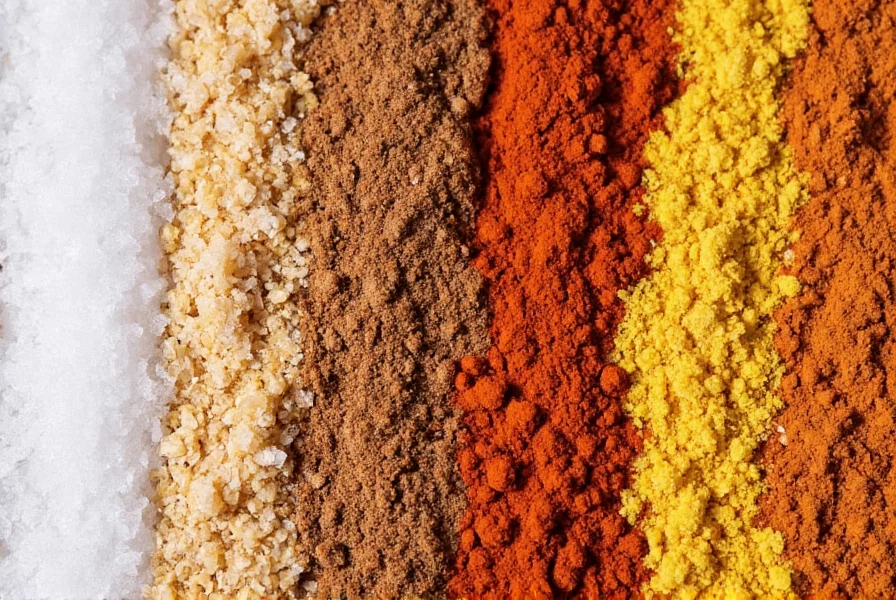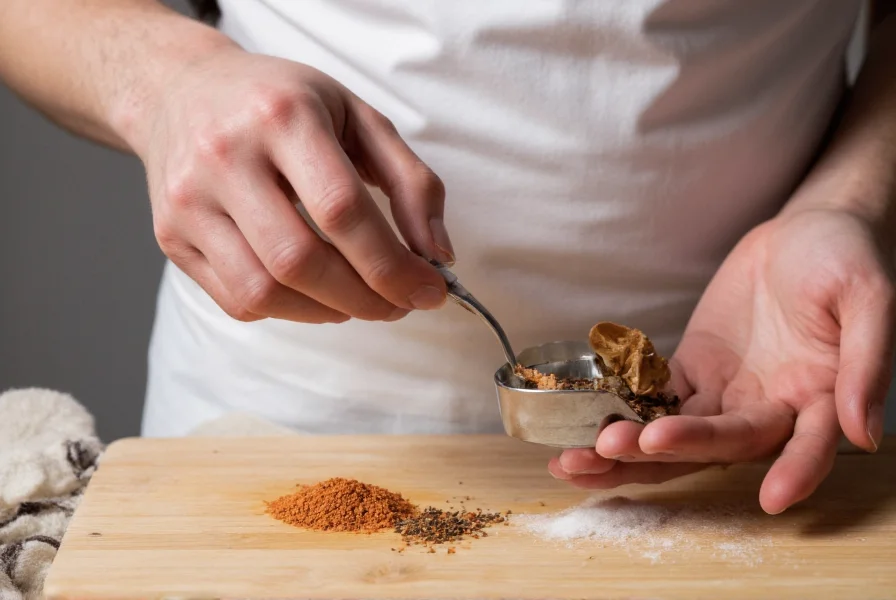Understanding whether is salt a spice in culinary terms requires examining both scientific definitions and cooking traditions. While grocery stores often group salt with spices, and home cooks frequently refer to their "spice rack" when including salt, the technical classification differs significantly. This distinction matters for food science, recipe development, and understanding flavor chemistry.
Defining Culinary Terms: Spice vs. Seasoning
The confusion around is salt considered a spice by food scientists stems from overlapping everyday language versus technical culinary terminology. Let's clarify these terms:
| Term | Definition | Examples |
|---|---|---|
| Spice | Flavoring substance derived from specific plant parts (seeds, bark, roots, fruits) | Cinnamon (bark), cumin (seeds), ginger (root) |
| Seasoning | Broad category of flavor enhancers including spices, herbs, salts, and other compounds | Salt, pepper, garlic powder, MSG |
| Herb | Flavoring from aromatic plant leaves | Basil, thyme, cilantro |
Salt belongs to the broader seasoning category rather than the specific spice classification. This distinction becomes crucial when understanding why salt is not a spice but functions differently in cooking applications.
The Scientific Explanation: Why Salt Stands Apart
Salt's chemical composition explains the difference between salt and spices from a food science perspective. Sodium chloride (NaCl) is an inorganic mineral compound, whereas all spices contain organic compounds derived from plant matter.
When examining is salt a seasoning or spice in professional kitchens, chefs recognize salt's unique properties:
- Flavor enhancement mechanism: Salt suppresses bitterness and amplifies other flavors through ion channels in our taste receptors
- Chemical interaction: Salt affects protein structures in foods, which is why it's used in brining and curing
- Solubility: Salt dissolves completely in water, unlike most spices which remain particulate
- Preservation function: Salt draws out moisture through osmosis, creating an inhospitable environment for bacteria

Historical Context: How Salt Became Confused with Spices
The historical context explains why is salt often mistaken for a spice in everyday language. During medieval times, salt was as valuable as spices like pepper and cinnamon, leading to similar trading routes and economic importance. This historical association persists in modern language despite the technical distinction.
When exploring the culinary classification of salt versus traditional spices, food historians note that:
- Salt was traded along the same routes as spices during the Age of Exploration
- Both were luxury items controlled by merchant guilds
- Modern grocery store organization perpetuates this historical grouping
Practical Implications for Cooking
Understanding how salt functions differently than spices in recipes has practical consequences for home cooks and professional chefs alike. When following recipes that specify "spices," salt is typically listed separately because of its distinct role.
Consider these practical differences when examining is salt a spice that affects cooking techniques:
- Timing of addition: Salt is often added early in cooking to penetrate foods, while many spices are added later to preserve volatile compounds
- Measurement precision: Salt requires more precise measurement as excess cannot be easily corrected, unlike many spices
- Flavor development: Salt enhances existing flavors, while spices introduce new flavor compounds
- Chemical reactions: Salt affects texture and structure (e.g., in bread dough or cheese making) in ways spices don't

Expert Perspectives on Salt Classification
When researching is salt considered a spice by culinary professionals, authoritative sources consistently distinguish salt from spices:
"Salt is a mineral seasoning, not a spice. While both enhance flavor, they originate from fundamentally different sources and interact with food chemistry in distinct ways." — The Food Science of Cooking, American Culinary Federation
The Institute of Food Technologists clarifies the scientific definition of spices versus salt by noting that spices contain volatile oils and organic compounds that create their characteristic aromas and flavors, while salt's flavor comes from ionic interactions with our taste receptors.
What This Means for Home Cooks
For practical kitchen applications, understanding why salt is different from other seasonings can improve your cooking:
- Store salt separately from spices to prevent moisture absorption
- Consider salt as a foundational element rather than just another flavoring
- Adjust salt levels before adding other seasonings to properly balance flavors
- Recognize that salt measurements are more critical than spice measurements in most recipes
When debating is salt a spice that requires special handling, remember that salt's unique properties make it indispensable in cooking, even if it doesn't technically qualify as a spice. This understanding helps explain why professional recipes typically list salt separately from "spices" in ingredient lists.
Frequently Asked Questions
Is salt technically classified as a spice in food science?
No, salt is not technically classified as a spice. Salt is a mineral compound (sodium chloride) while spices are derived from plant materials. This distinction is important in food science because salt interacts with food chemistry differently than plant-based spices.
Why do people commonly think salt is a spice?
People commonly mistake salt for a spice due to historical trading practices where salt had similar economic value to spices, and because grocery stores typically group salt with spices. Additionally, both enhance flavor, leading to conceptual grouping in everyday language despite the technical distinction.
What's the difference between a seasoning and a spice?
Seasoning is a broad category that includes any substance used to enhance flavor, including spices, herbs, salt, and other compounds. Spices specifically refer to flavoring substances derived from non-leafy parts of plants (seeds, bark, roots, fruits). Salt is a mineral seasoning, not a spice.
Does salt function differently than spices in cooking?
Yes, salt functions fundamentally differently than spices. Salt enhances existing flavors through ionic interactions with taste receptors, affects food texture and structure, and preserves food through osmosis. Spices primarily add new flavor compounds through volatile oils. This is why professional recipes typically list salt separately from spices.
Can salt be considered a spice in any context?
In casual, everyday language, many people refer to salt as a spice, and grocery stores often group them together. However, in culinary science, food technology, and professional cooking contexts, salt is consistently distinguished from spices due to its mineral composition and unique functional properties.










 浙公网安备
33010002000092号
浙公网安备
33010002000092号 浙B2-20120091-4
浙B2-20120091-4